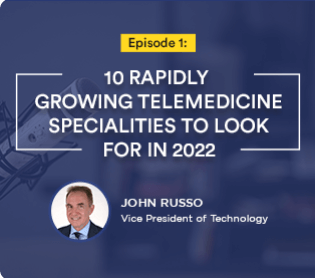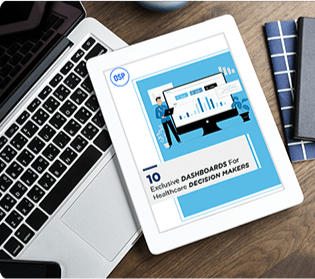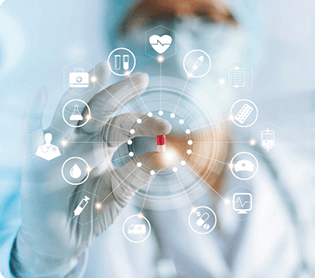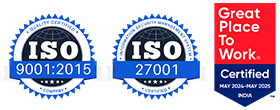While the pandemic rages through the world with unrelenting speed, healthcare organizations are looking to establish protocols that are aimed at increasing operational and financial efficiency. Electronic Health Records (EHR) integrated into medical billing is a vital component toward achieving this efficiency, owing to increased accuracy in tracking and reporting problems. Medical practices can achieve the much-needed boost through an Electronic Medical Record (EMR) software that offers integrated medical billing solutions. Electronic processing of tasks, managing claims, payment processing, and revenue generation can all be simplified through integrated medical billing. Medical billing services that include accurate claims coding, tracking, and invoicing are immediately streamlined through these integration services. Across the U.S. healthcare system, the benefits of electronic health records are undeniable. Applying these benefits of EHR into integrated medical billing can further compound advantages to healthcare organizations. With EHR implementation across almost every medical institution in the country, integrated medical billing is now the natural order of business.
Integrated EHR and Medical Billing Software
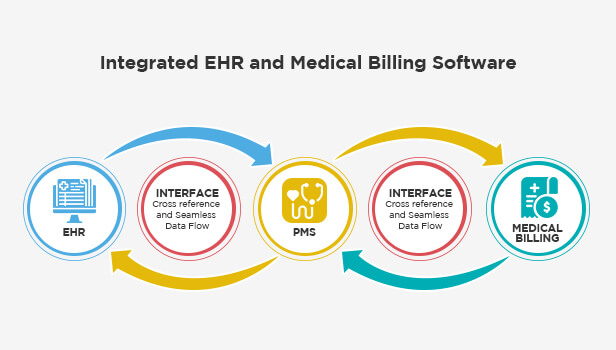
As we are aware of EHRs benefits, we must be mindful about choosing the integrated medical billing solution that is best-suited to the healthcare organization in question. EHR interoperability is one important factor that must be taken into consideration. While considering EHR implementations into integrated medical billing, technical and internal challenges must be factored in. During EHR implementations, the medical billing solution must be examined from an EHR integration point of view.
Operational Considerations:
Considering the advantages of EHR, an integrated medical billing system must have the capacity to perform everyday tasks in the billing process toward healthcare automation. EMR integration requires the medical billing system to have the ability to build charts towards medical claims that include details of patient visits, diagnosis details, lab details, etc. All operational dimensions of the practice, that is EMR and EHR, must be successfully merged into the integrated medical billing solution. During EHR application, the customization ability of the EHR systems must be factored in. Billing-friendly EHR integration can mitigate several technical challenges while implementing robust medical billing solutions.
Data Migration:
While undertaking the stages of EHR implementation, data migration is a critical task. Therefore, it would be prudent to adopt integration services for medical billing during the implementation of electronic health records. Among the challenges of implementing electronic health records, older billing systems, and paper-based procedures need to be addressed. Inaccessibility of patient medical history is a hurdle toward smooth operability and integrated electronic health records are a must with medical coding solutions for data sharing. Old records and new patient information need to be considered during the transition from paper to electronic medical records. Subsequently, EHR integration services will be most beneficial with a billing-friendly solution. For holistic usage, a hospital management software system must be able to access medical histories for insurance and new claims purposes. This integrated EMR information lends itself toward the billing system by offering healthcare data integration. EHR integration with a focus on data migration is more than half the battle won towards successful EHR billing.
Employee Training and Orientation:
Beyond technical considerations, another important factor toward EHR integration services is the training of staff and physicians at the healthcare organization. Accurate usage is a key component toward EHR implementation. Integrated medical billing requires the involvement of all entities of the organizations – administrators, staff, providers, physicians, and patients. Detailed training programs that are targeted toward integrated medical records, should not be overlooked. Interdepartmental training for EHR billing and coding, along with healthcare providers solutions. Switching from paper to electronic medical records is a one-time transition, but requires the entire healthcare organization to be proficient for smooth operations. EHR conversion should be accurately comprehended and execution efficiency is critical toward success.
Compliance:
Finally, ensuring that all integration services are HIPAA compliant is a significant component of EHR implementation. The solutions that your healthcare organization deploys need to be examined from the get-go to ensure that all compliance protocols are in place.
Steps toward Seamless Integration:
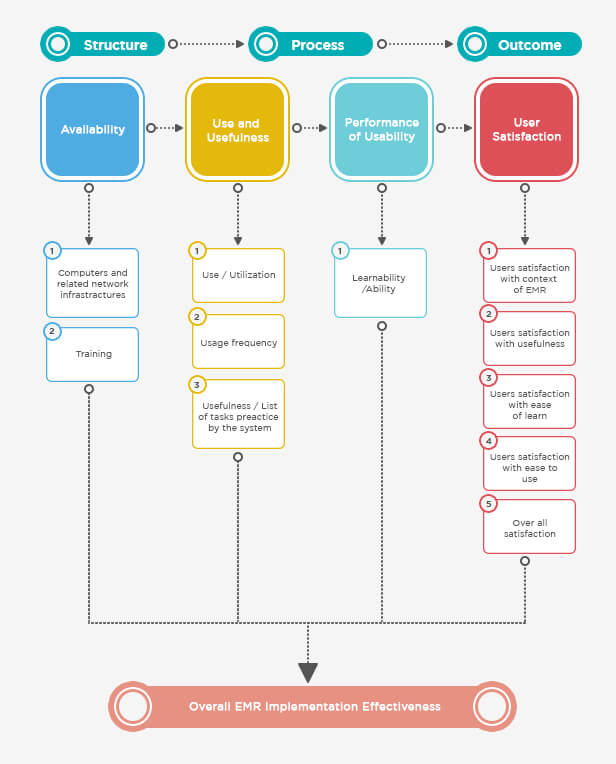
- Planning and setting goals that are best-suited to your healthcare organization, with a clear understanding of the requirements.
- Analyze and choose a vendor that meets these requirements, in conjunction with state-of-the-art technologies.
- Data architecture is a critical factor in smooth data migration.
- Creating and executing a design that keeps organizational data as a priority.
- Periodic testing of the deployment is a crucial component toward meeting deadlines and success.
- Comprehensive understanding, across the organization will translate to successful implementation.
- Ensure there are support protocols in place for any challenges along the way.
The Benefits of Integrated EHR and Medical Billing Software:
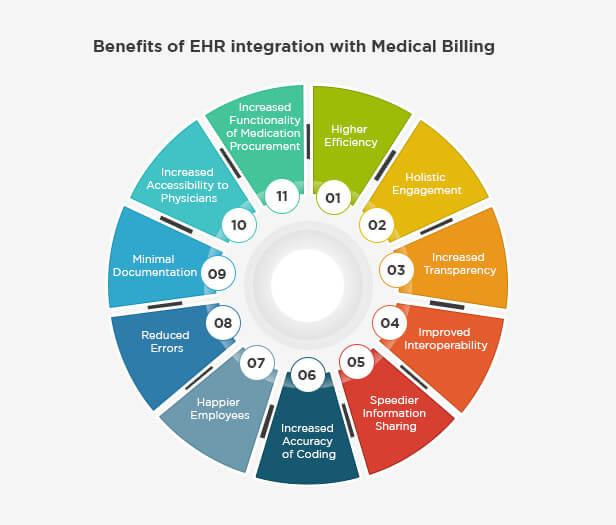
How does the use of an EHR system benefit the billing process? The answer is simple. In more ways than one. An integrated Electronic Health Record (EHR) with revenue cycle management, claims to process, and overall medical billing can drastically increase efficiency, productivity, revenue generation, and overall profit of the healthcare organization. EMR in medical billing uses electronic records, without the hassle of paper-based systems, to handle and manage claims, payments, and other financial aspects. This is essentially what is EHR in medical billing. Custom healthcare solutions can be deployed, which will factor in EHR system integration.
Higher Efficiency:
EHR and billing system integration creates a holistically workable platform, which is free from the hassle of paperwork and repetitive manual processes. Integrated medical billing services are faster, less prone to error, cost-efficient, and more productive. Medical claims management solutions can also be incorporated for robust functioning.
Holistic Engagement:
Integrated healthcare solutions with an incorporated EMR/EHR solution toward billing integration will offer a comprehensive platform that will allow hassle-free end-to-end operation across the healthcare organization.
Increased Transparency:
Integrated medical billing with EMR and EHR makes the entire billing process seamless and clear with no hidden costs or glitches. The considerably reduced margin of error, established through these integration services, builds trust among patients and providers. A lower rate of denied or rejected claims is another advantage of integrating electronic health records with medical billing services. Intelligent remittance software solutions further enhance this transparency.
Improved Interoperability:
The integration of electronic medical records and medical billing services creates an interoperability platform that establishes consistency across the entire healthcare organization. Advanced telehealth solutions can also be integrated into this EHR billing mechanism for full spectrum operability. All entities involved in the healthcare organizations are seamlessly involved through this EHR implementation.
Speedier Information Sharing:
Electronic health records and electronic medical records, along with billing integration, creates an interoperability environment that speeds up the process of interpreting actionable information. Caregivers are informed in a timely manner and patients are consistently engaged. Among the many benefits of electronic health records integration with medical billing, this one directly translates to higher revenue generation.
Increased Accuracy of Coding:
EMR integrated medical billing services, compounded with healthcare credentialing solutions, allow patient data to seamlessly move onto the billing system. Cleaner and error-free coding is enhanced through this smooth transition process and is a significant benefit of electronic health records. Reduced human error, reduced manual processes, and faster turn-around time is just a few of the many benefits of EHR and billing integration.
Happier Employees:
Efficient systems make happier employees. Integration of medical billing and EHRs benefits, therefore, directly translates to a happier healthcare organization. Reduced paperwork and increased employee satisfaction is a big advantage of EHR interoperability with billing. EMR implementations in billing reduce mundane workload and allow physicians to focus on caregiving.
Reduced Errors:
Presently, EHR interoperability is built into almost every healthcare organization across the country. With EHR implementations merged into financial billing solutions, significantly reduces hospital processes errors through automated solutions. EHR integration into medical billing can be executed through tailor-made or ready solutions.
Minimal Documentation:
EHR integration with medical billing can go a long way in improving patient experience. This advantage of EHR involves the collection of patient information to draw up schedules and automate patient documentation. Not only is the patient happier, but the load on healthcare workers and audit lapses are both reduced.
Increased Accessibility to Physicians:
Implementation of electronic health records with billing systems allows physicians to promptly access the updated medical history of the patient, allowing increased accuracy of treatment and billing.
Increased Functionality of Medication Procurement:
Integrated electronic health records and medical billing offer increased efficiency to pharmacy processes through automated prescription filling and procurement. This further enhances billing transparency between the physician, patient, pharmacy, and insurance provider.
Conclusion:
Transitioning from paper to electronic medical records through healthcare data integration is fast turning into a mandatory requirement among healthcare institutions. To stay ahead of the game, the next order of business is EHR billing. With innovative integrated medical record management solutions, switching from paper to electronic medical records has never been easier. As healthcare organizations make the transition to integrated electronic health records, medical billing consolidation must be marked as a high priority for overall functioning efficiency. The advantages of EMR in medical billing are multiple and can create a holistic improvement across the organization. Paperwork will turn into a thing of the past and the deployment of integrated electronic health records will go a long way in maintaining compliance standards.
EHR system integration has its distinct advantages, but the integrated EHR and medical billing software advantages are a notch further. This is the new face of healthcare that is guaranteed to transform overall processing. As you move along the path of EHR and billing system integration, technology enhancements will significantly improve your organization’s profitability. Whether it is an EMR/EHR solution, the true way to succeed is through medical billing incorporation.
Resources:
https://www.ehrinpractice.com/three-challenges-integrating-ehr-and-medical-billing-systems-299.html
https://aionys.com/how-an-integrated-ehr-and-medical-billing-system-can-better-medical-practices/
OSP is a trusted software development company that delivers bespoke solutions as per your business needs. Connect with us to hire the best talents in the industry to build enterprise-grade software.
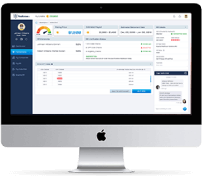
How can we help?
Fill out the short form below or call us at (888) 846-5382
Looking for software solutions to build your product?
Let's discuss your software solutions for your product in our free development acceleration call!
Get In Touch arrow_forwardDiscuss Your Project Handover with a team of expert Book a free consultation arrow_forward
About Author

Written by Riken Shah linkedin
Riken's work motto is to help healthcare providers use technological advancements to make healthcare easily accessible to all stakeholders, from providers to patients. Under his leadership and guidance, OSP Labs has successfully developed over 600 customized software solutions for 200+ healthcare clients across continents.












